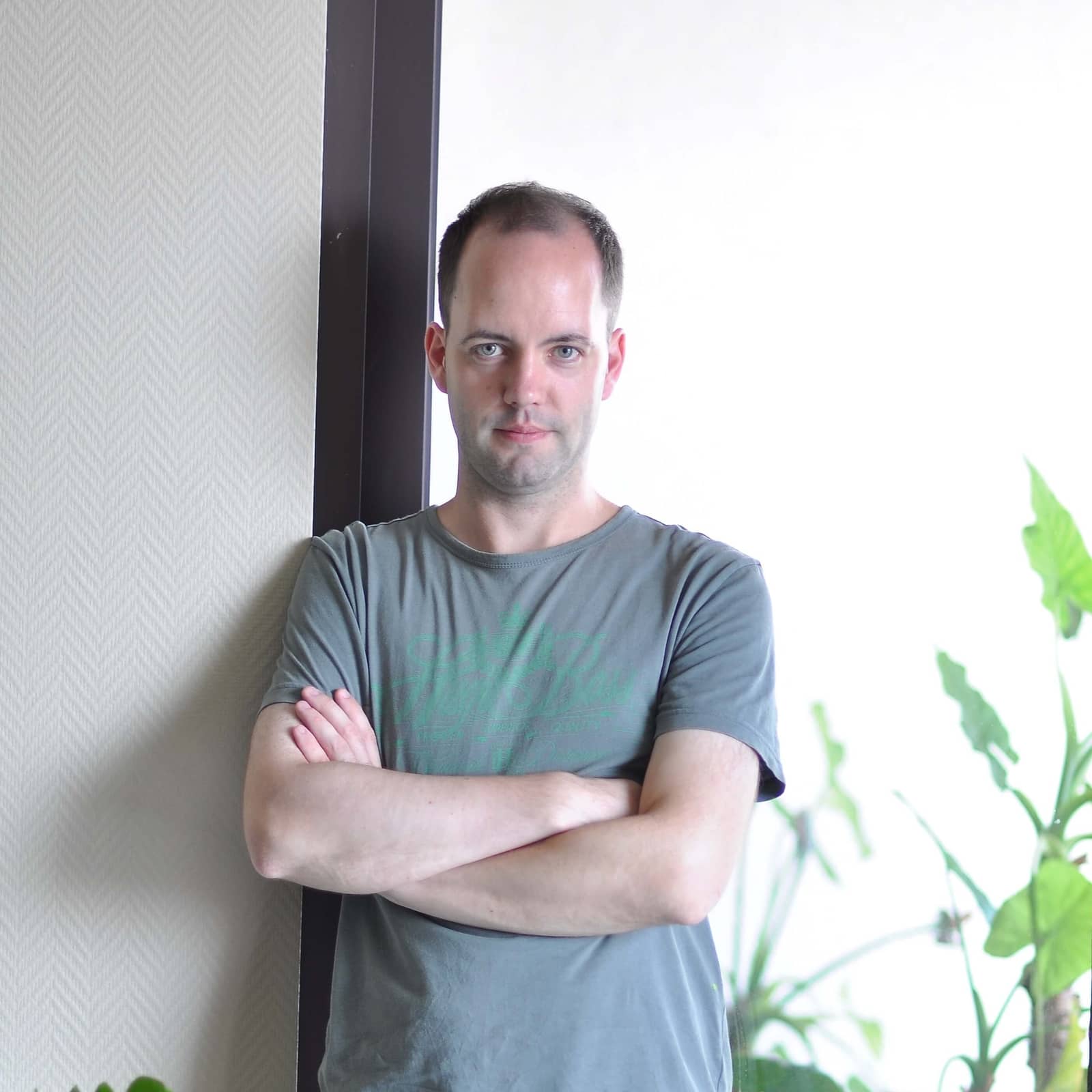
Learn from our community entrepreneurs! In this interview, Giles Dawe shares the story of building and growing Hyperstarter, located in Bristol, , United Kingdom.
Hi! Tell us about your business and what problem are you solving?
Thank you for the interview. My name is Giles Dawe, I’m 40 and am the owner of Hyperstarter which is based in the UK and China.
Previously I was semi-retired in Hong Kong, working as a fine artist, selling my paintings to film directors and those who didn’t have to work for a living.
My full-time work now is Hyperstarter, a web-based analytics tool that gives advice on how to make a Kickstarter campaign successful. We help at all stages of a crowdfunding campaign, in an industry that raises more money than venture capital.
Since 2016 we’ve raised an additional $6m for campaign owners, working on over 300 campaigns and are ranked in the Top 9 Kickstarter Marketing Agencies in the World by Crowdcrux. We even started to write a guide on Kickstarter marketing, teaching everything we know about it.
On average we’re making about $5000 a month, but last month we made close to $10,000 by closing some new work with campaign owners.
What's your backstory and how did you come up with the idea?
My background is creative, as I studied painting at the University of Wales and at L’ecole de Nantes, France. I realized earlier on in my 20’s that having a degree in fine art wasn’t useful and I was supplementing my income by working on the checkout of a local supermarket and buying and selling Nintendo 64’s on eBay.
Around the year 1999, the web was reaching its peak and I learned web design fairly quickly. I got a job working on ThisIsBristol, a local news portal connected with the Daily Mail group. I worked there for 3 months, learning as much as I could before moving over to a UK based Government agency, working there for 2 years as the head of web design and development.
Speaking to the bosses, we both agreed that I should leave the company. The role was very well paid and I had the responsibility of traveling to London frequently to speak with top Government staff to working on the £4.5m Planning Portal. I had itchy feet and felt I could do a lot more if I worked for myself.
I decided to move to Hong Kong to live with my partner, where I did a lot of freelance work and also made good money from buying and selling websites and domains. Freelancing was tough, so I made my own websites making money from sponsorships, Ask (Jeeves) and Google Adsense. As Hong Kong is predominantly full of millionaires, I built up my social network and started to create custom paintings and get represented by galleries.
At this stage, I didn’t get many failures in the web work I was doing and ended up moving to China in 2006. In the years from 2004-2008, it seemed people had a lot more disposable income. I remember selling the Mobiles.org.nz domain name for close to $3000! Now the value of this domain would be around $50.
My biggest life event at this point is that I became a full-time father and stopped working for about 4 years, relying on income from my websites.
Later as my son was in full-time education, I was able to restart my work and get rid of the sites that didn’t generate much income because Google changed their Adsense terms. In 2015 I created Gifts and Coupons which listed all the latest, cool gifts you can buy. It was the type of site I wanted to visit, as I found it hard to find great presents. I started to get messages from people with crowdfunding campaigns who wanted to be on the site, but as they weren’t things you could physically buy I turned them away.
The requests became so frequent that I looked into crowdfunding and Kickstarter, which is the biggest rewards-based platform. I saw that only 30% of all crowdfunding campaigns were successful and reached their goal! I thought I could help and built Hyperstarter, which focuses on the campaign page first for free and then offers additional paid services from promotion on the site to “hands-on” work.
What’s your one biggest challenge you face and how do you overcome it?
As I’m reading through this interview, it seems everything was great and I was moving from one job to another. In reality, there was no support network around to bounce off ideas or to bring others onboard.
The majority of my working life has been remote working in Asia, usually from home by myself, bootstrapping and having the difficulty of facing a work/life balance whilst spending time working out what I should be doing.
Being based in China and running an internet business was hard. The majority of popular sites from Google, Facebook, Twitter were blocked in the country so I had to find alternatives to use.
My daily routine isn’t healthy either, with hours ranging from 9 am to 1am on most weekdays.
In terms of the niche of crowdfunding, Kickstarter has a bad reputation. Even if the campaign owner reaches their goal and successfully funds, it doesn’t mean backers will receive their product on time (or if at all!). Right now 160 new campaigns per day are added to the Kickstarter platform, but if the problem persists combined with a low 30% success rate I can see entrepreneurs finding non-crowdfunding ways to raise finance in the near future.
To anyone looking to start or grow a business today, what three tips would you give them?
The biggest mistake is not launching Version 2 of Hyperstarter. We could have launched 1 year ago, but instead, refinements and changes have delayed the launch.
Right now, it’s not so urgent as the site is automated and it’s bringing in regular sales per week. Version 2 has the possibility of bringing in dozens of automated sales per day, so between working on campaigns per day or working on V2, we need to work on our own site ASAP.
We could have captured emails better at the beginning. Previously, users could run their Kickstarter URL and then after they didn’t know what to do next. We implemented a free downloadable PDF report, in exchange for an email address which works very well in collecting emails for our newsletters.
Where can we go to learn more about your business?
| Website | https://www.hyperstarter.com/ |
|---|

